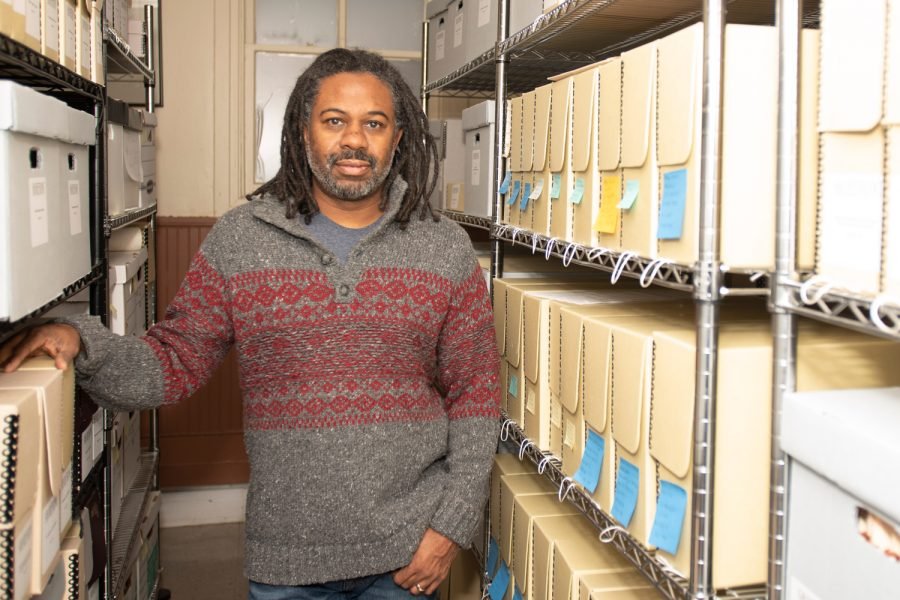Local historians win award for report on Evanston’s history of racial discrimination
Daily file photo by Colin Boyle
Dino Robinson Jr. Robinson and his co-author, Jenny Thompson, received a national award for their report on Evanston’s history of racially discriminatory practices and policies.
February 20, 2022
Local historians Dino Robinson Jr. and Jenny Thompson won a national award Wednesday for their report on Evanston’s history of racial discrimination.
The report, titled “Evanston Policies and Practices Directly Affecting the African American Community” serves as the legal basis for the city’s reparations initiative.
The National Council on Public History, a professional membership organization based out of Indianapolis, awarded Robinson and Thompson’s report with the Outstanding Public History Project Award in the Small Institution category. The award recognizes works which “contribute to broader public reflection and appreciation of the past or that serve as a model of professional public history practice,” according to the organization.
NCPH praised the report for its use of previously unknown sources and its integral role in Evanston’s reparations initiative, the organization said in a news release.
“This collaboration among historians and local lawmakers provided an important template for the role of public history and public historians in supporting racial justice,” the release said. “It expands how we think about public history and makes the work of public historians critical and immediate.”
Robinson founded the Shorefront Legacy Center and Thompson serves as the director of education for the Evanston History Center. The city first commissioned the report in July 2020, and Robinson and Thompson have published periodic updates since first sharing it with the public in August 2020.
Robinson and Thompson told The Daily in a statement they are grateful for the award and eager to continue work on the report.
“It was an amazing opportunity to work on such an important report – a report that not only presents a critical part of Evanston’s history, but also relates to the historical moment unfolding right now in Evanston after the passage of the local reparations legislation,” the statement said. “We are excited to continue this work and to continue to share it going forward.”
Email: [email protected]
Twitter: @alexhairysun
Related Stories:
— “Moving forward with tangible repair”: First recipients selected for Evanston reparations program
— Black historian Dino Robinson honored with street name
— Reparations subcommittee recounts Evanston’s history of discriminatory policies and practices


